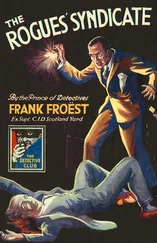They crowded round the monitors.
'She's diving.'
'At a fair pace, too. She's three kilometres from the shore already. The whole pod's heading out to sea.'
'Maybe it's time for them to get going again.'
'But why would they dive so deep?'
'Plankton sinks at night, doesn't it?
'No.' Ford shook his head. 'That makes sense for other species, but not for benthic feeders. They've got no reason to-'
'Look! Three hundred metres.'
Ford leaned back. Grey whales weren't especially fast. If need be, they could put on a spurt, but ten kilometres an hour was as fast as they usually travelled, unless they were migrating or fleeing from a predator.
What had got into them?
He was sure now that he was observing anomalous behaviour. Grey whales fed almost exclusively on benthic organisms. When they migrated, they never strayed further than two kilometres from the coast. Ford wasn't sure how they'd cope at a depth of 300 metres. Ordinarily they never ventured below 120 metres.
Suddenly something lit up at the bottom edge of the grid: a green flash that shone for a moment before it was extinguished.
A spectrogram! The visual representation of a sound wave.
Then another.
'What was that?'
'Some kind of sound. The signal's pretty strong.'
Ford stopped the tape and rewound. They watched the sequence again. 'It's an incredibly loud signal,' he said. 'Like an explosion.'
'But there haven't been any explosions near here. We'd hear an explosion. This is infrasound.'
'I know. I only said it was like an explo-'
'There it is again!'
The green dots on the screen had stopped. The loud noise appeared a third time, then vanished.
'How deep are they?'
'Three hundred and sixty metres.'
'Unbelievable! What are they doing down there?'
Ford's gaze shifted to the left-hand screen, showing the footage from the camera. The black screen. His mouth dropped open. 'Look at that,' he whispered.
The screen wasn't black any more.
Vancouver Island
Frank's company was just what Anawak had needed. They had strolled along the beach towards the Wickaninnish Inn, discussing the environmental project with which Frank was involved. He came from a long line of fishermen, and now ran a restaurant, but recently the Tla-o-qui-aht had begun an initiative to combat the damage caused by logging. 'Salmon Coming Home' stood for their attempt to restore the complex ecosystem of Clayoquot Sound. The timber industry had devastated the area. No one was naive enough to think that the forest could be restored, but plenty could be done. Clear-cut logging was to blame for the forest floor drying out in the sun and washing away in the rain. The topsoil flushed into lakes and rivers, adding to the congestion caused by stones and abandoned timber and depriving the salmon of their spawning grounds. With its disappearance, an important food source had been lost to other animals. The restoration project helped to train volunteers to clear the rivers and cut a path through disused roads where water used to flow. Protective walls of organic debris were constructed along drainage channels, while the banks were planted with fast-growing alder. Slowly the environmentalists were restoring some of the balance to the relationship between forest, humans and animals. It took constant energy and drive, and there was little prospect of speedy results.
'You know, if you take up whaling you'll make a lot of enemies,' said Anawak, after a while.
'And how do you see it?' asked Frank.
'If you want my opinion, it's not wise.'
'I expect you're right. They're a protected species, why hunt them? Not all of us are in favour of resuming whaling. For a start, does anyone know how to hunt any more? And what about the spiritual preparation? It's hard to imagine people submitting to the 7uusimch , these days. But, that said, our people haven't hunted whales for nearly a century, and in real terms we're talking five or six creatures per year – a truly insignificant number. There aren't many of us left, you know. Our forefathers lived off whales. The hunters observed rituals that lasted months and even years. Before they set out they purified their spirit in readiness for the gift of life that the whale would make to them. It wasn't a question of harpooning the first animal they set eyes on. They were drawn to a particular whale by unknowable forces, in a kind of vision uniting hunters and whale. It's that spirituality we want to preserve.'
'Sure, but whales are worth a lot of money,' said Anawak. 'A spokesman for the Makah set the value of a grey at half a million US dollars. Whale and whale oil sell at a premium overseas, he said. In practically the same breath he mentioned the Makah's economic problems and high unemployment. That wasn't very clever – and it's a far cry from spirituality.'
'Oh, you're probably right there too. All the same whether you think it's greed or tradition that motivates the Makah, you can't ignore the fact that they refrained from whaling and set aside their right to do it at a time when whales were being hunted to extinction by whites. Commercial whaling isn't exactly spiritual either. It was whites who started to treat life as a commodity. They were quick to help themselves to whatever they wanted – but now if we mention money it causes such outrage that you'd think the survival of the planet was at stake. Funny, isn't it? The Aboriginal peoples take only what they need of the supplies that nature gives them, but the whites treat them wastefully. It's only when there's almost nothing left that they wake up and want to protect our resources – which means saving nature from those who never posed a threat. If whales are still endangered, then the Japanese and the Norwegians are to blame. We've never been guilty of wiping out a species, but we've been made to take the punishment.'
Anawak was silent.
'Our people are trapped,' said Frank. 'Things have got better, but I can't help thinking we're trapped in a conflict that we can't escape on our own. Have I ever told you that after every catch, every successful business deal, every celebration, I put something aside for the Raven?'
'No.'
'Do you know about Raven and his hunger?'
Anawak shook his head.
'Raven isn't actually the main animal spirit here. For that you'd have to go further north, to the Haida or the Tlingit. On the island you'll hear stories about Kánekelak, the changer – but we like Raven too. The Tlingit say that he speaks for the poor, like Christ, so I always break off morsels of meat or fish to leave for him. He was born the son of a beast-man and put into a raven's skin by his father, who named him Wigyét. As he grew up, Wigyét ate his people out of house and home, and they sent him into the world. He was given a stone to take with him so he had a place to rest, and the stone became the land in which we live. He stole the sunshine and brought it back to Earth. I give to Raven what belongs to him. At the same time I know that he is the result of evolutionary processes that started out with proteins, amino acids and single-cell organisms. I love our creation myths, but I also watch TV, read, and know about the Big Bang. So do Christians though, but that doesn't stop them learning about the seven days of creation and Adam and Eve. They had centuries to adjust their thought, find a way to unite mythology and modern science. We were given barely any time at all. We were thrown into a world that wasn't ours and never could be. Now we're returning to our own world and discovering that we no longer know it. That's the curse of being uprooted, Leon. You don't belong anywhere, neither in the old nor the new. The Indians were uprooted. The whites are doing their best to make up for it, but what can they do when they're uprooted too? They're destroying the world that created them. They've gambled away their homeland. We all have, in one way or another.'
Читать дальше












